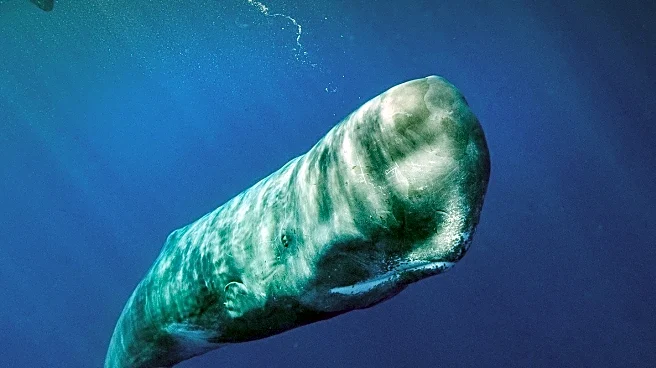What's Happening?
A rare Pygmy Sperm Whale was discovered dead on a beach in Devon, and post-mortem tests suggest it died from head trauma. The whale, measuring between 11ft and 13ft, was found at Bigbury on Sea and examined by the Cetacean Strandings Investigation Programme (CSIP). Despite the whale's decomposed state, evidence of hemorrhage and trauma around the head was found, indicating physical trauma as the likely cause of death. The exact cause of the trauma remains unknown, with speculation about possible beach damage or other incidents.
Why It's Important?
The discovery of the rare whale highlights the challenges faced by marine life and the importance of understanding the causes of such strandings. The findings contribute to ongoing research into the lives and deaths of marine animals, providing valuable data for conservation efforts. The incident underscores the need for continued monitoring and protection of marine species, particularly those that are rare and vulnerable. It also raises awareness about the impact of human activities on marine environments and the potential threats they pose to wildlife.
Beyond the Headlines
The whale's death prompts further investigation into the environmental factors affecting marine life, including pollution, shipping activities, and climate change. Understanding these factors is crucial for developing strategies to mitigate their impact and protect marine biodiversity. The case also highlights the role of organizations like CSIP in advancing scientific knowledge and informing policy decisions related to marine conservation.









